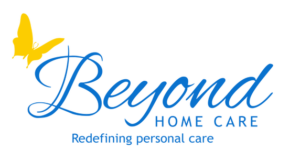
... Where do I even begin?
Most family caregivers never expect to become caregivers. It’s typically a surprise…or a complete shock! You may be more than happy to help or find it necessary to step in, either way, the question I am asked more than any other is: Where do I even begin?
It can be overwhelming and stressful to take on the care of anther person. They may be completely reliant on you for day to day care or you may be stepping in to manage finances from across the country. Either way, there is a shift in priority and responsibility. You now must manage not only your own life, but that of another person. There are a thousand things to consider when becoming a caregiver but I find its best to start broad and simple. To help you wade through the initial paralysis of where to begin, I have compiled theses 5 helpful steps.
Get Organized
Organization looks different for everyone and what works best for me, may not work best for you. But the focus needs to be getting everything together that you need, in one place. Find an old notebook or binder and collect insurance papers, advance directives, doctors’ numbers, medication lists, etc. Keep it all together so you can easily access what you need whenever you need it. If you prefer a digital approach, try an app like Evernote or Trello to keep everything you need easily accessible in your smart device. You can use Google Calendars to keep up with appointments or tasks that need to be completed by a specific date. Although organizing can take a little time, it will save you so much time and mental energy in the long run. (More to come on this topic in the coming weeks so be sure to check back)
Write it Down
As much as we want to rely on our memory, when things get busy and you are out of your normal routine, it’s easy to forget. In your handy binder or app, make sure there is a place to make notes. This will come in handy when you are accompanying your senior to a doctor’s appointment, paying bills, or picking up a few items at the grocery store. Keeping these notes together and well organized will help you stay focus and keep your tasks straight for your senior.
Find Support
We can’t be everything to everyone all the time. When becoming a caregiver its important to reach out and ask for help when needed. Support can come in the form of emotional, physical, and even mental help. Becoming a caregiver can be full of emotions, positive and negative. Your feelings are valid, no matter what they are, and you need to be kind to yourself if you are going to care for your senior.
Find a support group, online Facebook group, friend, neighbor, etc. to lean on for emotional support. Sometimes simply having a friend to listen to you when stress creeps in, can help more than anything else. It’s easy to think we can handle things alone but asking for help or even receiving help when offered is so very important to ward off caregiver burnout.
If you don’t have family or friends who can provide respite care, consider hiring a caregiver to come into the home and provide a few hours of relief for you. You must take care of yourself if you are to care for another person. I always tell my family caregivers, “You cannot pour from an empty cup.” Allow others to help you!
Educate Yourself
Today’s world is amazing in that anything you want to learn is simply a click away on the internet. If you have become a family caregiver it’s likely due to your senior being diagnosed with an illness, recovering from an injury or natural aging. Regardless, there are resources galore and the opportunity to learn as much as possible about their circumstances is endless.
You can also reach out to professionals in the aging community who can help educate you on what your senior needs and who to contact. As a Certified Senior Advisor, my job is to help guide family caregivers to valuable resources and experts who can support them in the journey of caregiving. It’s important to surround yourself with others who can lend their expertise in their field whether it’s an Elder Attorney, Financial Advisor, physician, or the leader of your local Alzheimer’s Association. You don’t have to walk this path alone.
Breathe
It may sound trite but stop and breathe. You can do this! Take it one step at a time and try not to get overwhelmed with what could happen in the future. Focus on today, and the present. It’s easy to get overwhelmed when we let ourselves think too far ahead and all that needs to be done. Take it one day at a time, the rest will start to fall into place.
